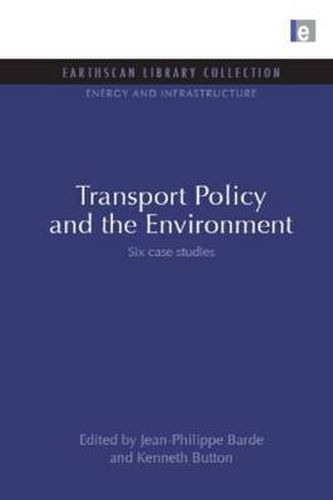Readings Newsletter
Become a Readings Member to make your shopping experience even easier.
Sign in or sign up for free!
You’re not far away from qualifying for FREE standard shipping within Australia
You’ve qualified for FREE standard shipping within Australia
The cart is loading…






Transport, in particular the motor vehicle, is a major source of environmental disruption and, in the developed world, accounts for 30 per cent of energy consumption. In most countries, transport policy is a major government concern, yet it is rare for decisions to be made outside a narrow set of sectoral considerations. This book, commissioned by the OECD, looks at seven countries; the UK, the USA, West Germany, France, The Netherlands, Greece and Italy. Each case demonstrates, in different ways, the problems in transport policies produced by the failure is a consequence of departmental division: transport, the environment, the exchequer, etc. all have their own, quite separate ministries. Here, a group of economists have demonstrated both the folly of such partial ways of thinking and, in writing their critiques of specific disaster, have provided models for ways forward. Originally published in 1990
$9.00 standard shipping within Australia
FREE standard shipping within Australia for orders over $100.00
Express & International shipping calculated at checkout
Transport, in particular the motor vehicle, is a major source of environmental disruption and, in the developed world, accounts for 30 per cent of energy consumption. In most countries, transport policy is a major government concern, yet it is rare for decisions to be made outside a narrow set of sectoral considerations. This book, commissioned by the OECD, looks at seven countries; the UK, the USA, West Germany, France, The Netherlands, Greece and Italy. Each case demonstrates, in different ways, the problems in transport policies produced by the failure is a consequence of departmental division: transport, the environment, the exchequer, etc. all have their own, quite separate ministries. Here, a group of economists have demonstrated both the folly of such partial ways of thinking and, in writing their critiques of specific disaster, have provided models for ways forward. Originally published in 1990